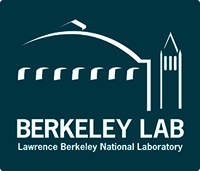Newswise — Hydro-Québec and the U.S. Department of Energy’s Lawrence Berkeley National Laboratory (Berkeley Lab) have agreed to explore collaborations toward the research and development of manufacturing and scale-up technology to advance transportation electrification and energy storage.
The two institutions have signed a Memorandum of Understanding (MOU) to assess the feasibility of creating a Québec Berkeley (QUBE) joint research center based in the San Francisco Bay Area that will speed up development of next-generation battery materials, processes, and methodologies and conduct manufacturing from pilot scale to pre-production levels. The technologies developed will be transferred to battery manufacturers, leading to job creation in Québec and California.
“Hydro-Québec is a world leader in scaling up energy storage to the marketplace, and this MOU provides a unique opportunity for collaboration,” said Berkeley Lab Director Mike Witherell. “Berkeley Lab's groundbreaking research in this arena is also well-recognized, and this is an excellent way to partner on a project that will provide significant benefits to both Canada and the U.S. We are especially excited about creating jobs in both Canada and California."
Québec and California have each set ambitious greenhouse gas reduction targets that affect the grid as well as the transportation sector. The California Global Warming Solutions Act of 2006 set a target of reducing state greenhouse gas emissions to 1990 levels by 2020. Québec’s Zero Emissions Vehicle (ZEV) mandate requires all automakers to generate ZEV credits equivalent to 3.5 percent of sales in 2018, climbing to 15.5 percent in 2020.
“Hydro-Québec has developed extensive expertise in the area of battery materials scale-up and commercialization for electric vehicles and grid storage,” said Karim Zaghib, General Director of the Center of Excellence in Transportation, Electrification and Energy Storage and Conversion (CETEES) at Hydro-Québec. “CETEES’ work on advanced materials, particularly for lithium-ion and solid-state lithium metal batteries, has resulted in 30 active licenses, 845 patents, and 370 scientific publications in the last few years.”
Lawrence Berkeley National Laboratory addresses the world’s most urgent scientific challenges by advancing sustainable energy, protecting human health, creating new materials, and revealing the origin and fate of the universe. Founded in 1931, Berkeley Lab’s scientific expertise has been recognized with 13 Nobel Prizes. The University of California manages Berkeley Lab for the U.S. Department of Energy’s Office of Science. For more, visit www.lbl.gov.
DOE’s Office of Science is the single largest supporter of basic research in the physical sciences in the United States, and is working to address some of the most pressing challenges of our time. For more information, please visit science.energy.gov.
Business contacts:
Louis-Olivier Batty, Hydro-Québec
[email protected]
(+1) 514-289-4214
Rahul Chopra, Berkeley Lab
[email protected]
510-486-6732
